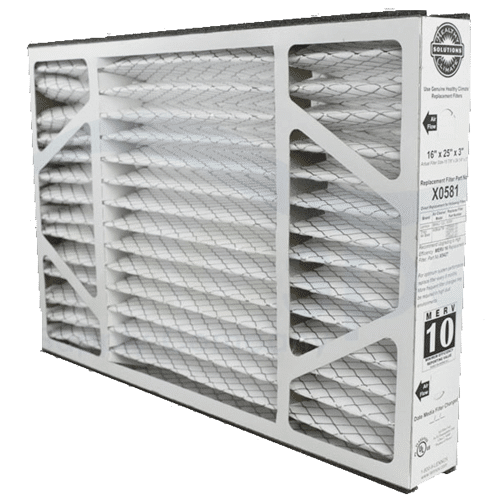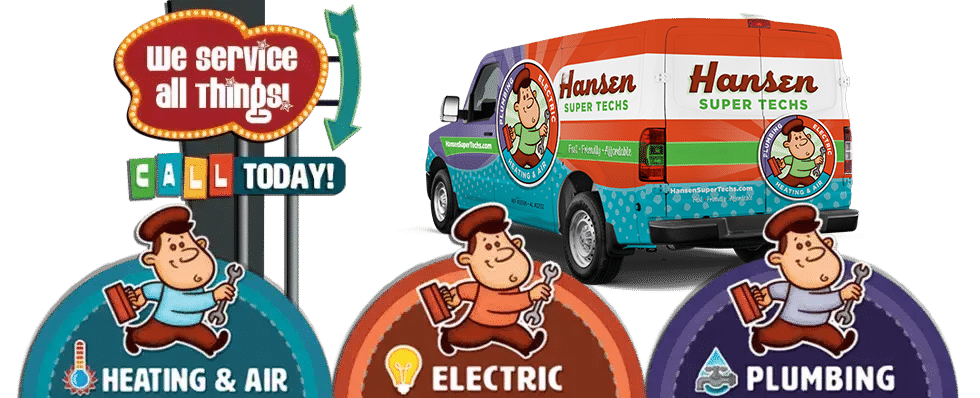HEPA vs. MERV Filters: All You Need to Know

There are many different air filters on the market, but two of the most common are HEPA and Merv filters. While they both serve the same purpose of cleaning the air in your home or office, they have some key differences.
What Is a HEPA Filter?
A HEPA filter is a type of air filter that removes 99.97% of all particles as small as 0.03 microns from the air. HEPA, or High-Efficiency Particulate Air, filters are often used in hospitals and other medical settings because they are effective at removing bacteria, viruses, and other allergens from the air.
These filters are designed to specifically remove tiny allergens, dust, and smoke particles from the air, making them ideal for people with allergies or asthma.
HEPA filters are typically more expensive than other types of air filters, but they offer the highest level of filtration. They are also very effective at trapping particles, and they need to be replaced less often than other filters.
Features of a HEPA Filter
Some features of a HEPA filter include:
- Removes 99.97% of all particles as small as 0.03 microns
- Ideal for people with allergies or asthma
- Is more expensive than other types of filters but lasts longer
Types of HEPA filters
There are two types of HEPA filters:
- True HEPA filters remove 99.97% of all particles as small as 0.03 microns
- High-Efficiency Particulate Air (HEPA) filters remove 95% of all particles as small as 0.30 microns
What Is a MERV Filter?
A MERV filter is a type of air filter that removes larger particles from the air, such as pet dander, dust, and pollen. MERV stands for “minimum efficiency reporting value,” and filters with a higher MERV rating remove more particles from the air.
MERV filters are less expensive than HEPA filters and are available in a variety of sizes, making them ideal for homes and offices of all sizes. It does not remove as many tiny allergens and smoke particles as a HEPA filter, but it is less expensive and can be replaced more often.
MERV filters are not as effective at trapping particles as HEPA filters, so they do not offer the same level of filtration. However, they are still a good option for people who want to remove larger allergens from the air.
Features of a MERV Filter
Some features of a MERV filter include:
- Removes large particles such as pet dander, dust, and pollen
- Less expensive than HEPA filters
- Needs to be replaced more often than HEPA filters
- Isn’t as effective at trapping particles as a HEPA filter but still a good option for people who want to remove allergens from the air
MERV filters are rated on a scale from one to 16 with the higher numbers indicating a more effective filter. A MERV filter with a rating of six or higher is generally recommended for people with allergies or asthma.
Types of MERV Filters
The two types of MERV filters are mechanical and disposable. Mechanical MERV filters use a physical barrier to trap particles whereas disposable MERV filters are made of paper or fiberglass and can be replaced once they become clogged. Both types are effective at removing allergens from the air, but disposable filters are less expensive and are easier to replace than mechanical filters.
The most popular type of MERV filter is the disposable type, which is less expensive and easier to replace than mechanical filters.
What’s the Difference?
HEPA filters are different from MERV rated filters in the following ways:
- HEPA filters remove 99.97% of all particles as small as 0.03 microns whereas MERV filters only remove larger particles.
- HEPA filters need to be replaced less often than MERV filters.
- HEPA filters are more expensive than MERV-rated filters.
- While MERV filters are rated 1-16, HEPA filters are not rated since they exceed ASHRAE Standard 52.19.
- MERV filters are not as effective at trapping particles as HEPA filters.
In general, HEPA filters are more effective at removing tiny allergens and smoke particles from the air than MERV filters. However, MERV filters are less expensive and can be replaced more often. If you are looking for a filter that removes large allergens from the air, a MERV filter may be a better option for you.
HEPA Filter Use
Due to the highly effective nature of a HEPA filter, it is used in a variety of settings, including hospitals, laboratories, and factories.
HEPA filters are also recommended for people with allergies or asthma. A HEPA filter can help reduce the amount of allergens in the air, which can improve your quality of life.
In environments where the required air filtration standards are high, such as in the medical field or with products that can produce fine dust particles, a HEPA filter is a necessary part of air filtration.
MERV Filter Use
MERV air filters are commonly used in residential and commercial settings. They are less expensive than HEPA filters and can be replaced more often.
MERV air filters will provide clean air for people who are not as sensitive to allergens as those with allergies or asthma.
MERV filters should not be used where the required air filtration standards are high. For example, they should not be used in hospitals, laboratories, or factories.
Choosing an Air Filter
When choosing an air filter, it is important to consider several factors. These are:
- Environment: The type of environment will be an important factor in your decision. If you are in a dusty environment, you will need to use a filter with a higher MERV rating. As we saw earlier, sensitive environments such as laboratories and hospitals have a higher air filtration standard and require a HEPA filter.
- Needs: Consider what your needs are. If you are looking for a filter to remove large allergens from the air, then a MERV-rated filter is a good option. If you need a filter to remove tiny allergens and smoke particles from the air, then a HEPA filter is a better option.
- Cost: Filters come in a variety of prices. Consider how often the filter will need to be replaced and how much you are willing to spend on one.
- Size: Filters also come in different sizes. Make sure to choose one that will fit your needs. A professional can help you determine the size of the filter you need.
Air Filter Maintenance
Both HEPA and MERV filters need to be maintained to continue working effectively. It is recommended that you replace your air filter every six months to a year, depending on the type of filter you have.
A professional should be called to clean or to replace your air filter since you do not want to tamper with the HVAC system.
Know Your Professionals
Hansen Super Techs LLC is a professional HVAC company serving residential and commercial clients in the Alabama area. Founded in 2006, we take pride in providing expert HVAC services to all clients with a qualified team of industry experts available 24/7.
Our HVAC services include installations and repair, maintenance, and 24/7 emergency service. Client testimonials are available on our website, and a free estimate is provided for all services.
Contact Hansen Super Techs today for reliable HVAC services!


